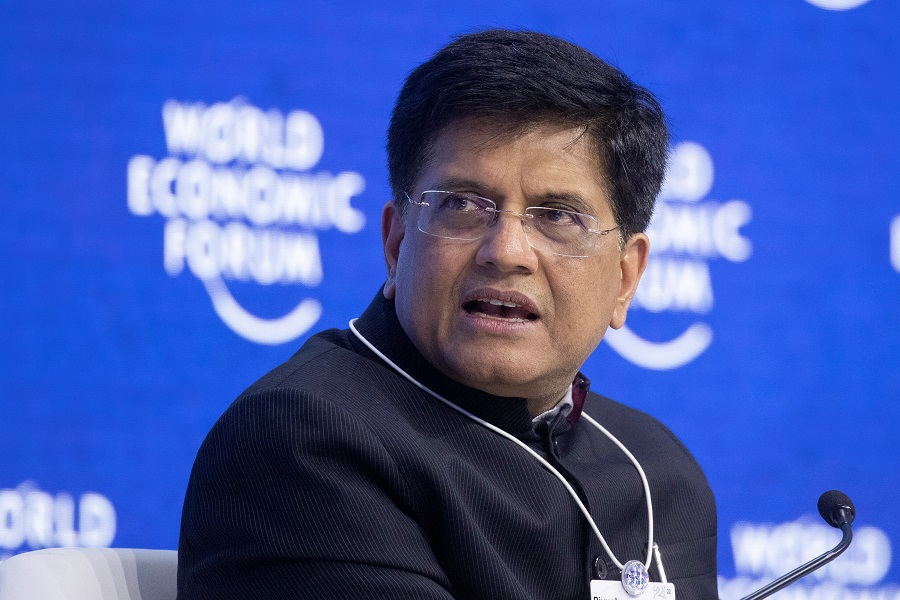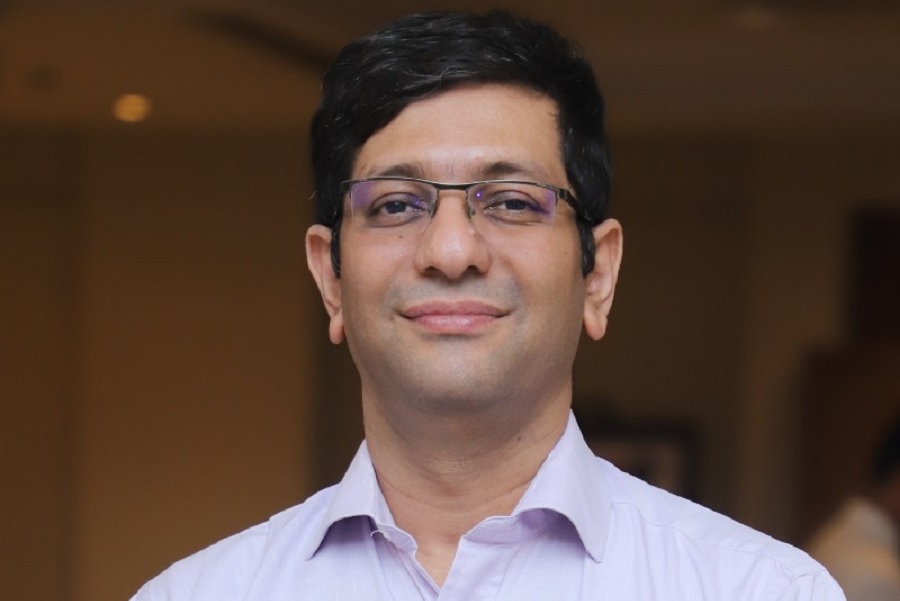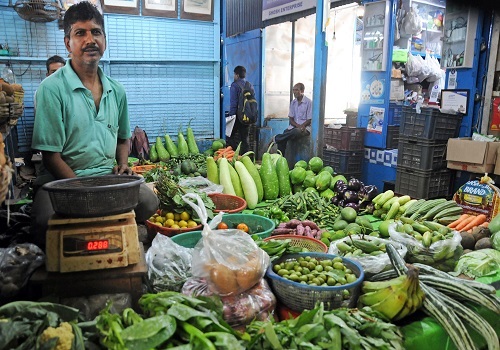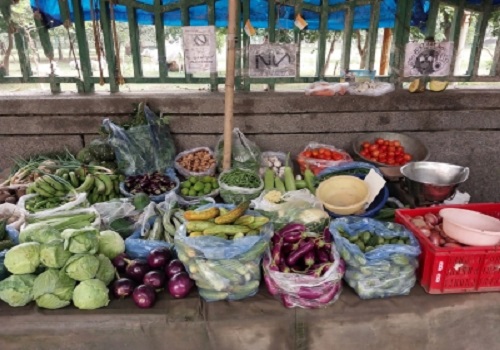India trade minister says central bank should cut rates, look through food prices

India's central bank should cut interest rates to boost economic growth and look through food price while deciding on monetary policy, the trade minister said, the first time a government minister has backed calls to re-examine the nation's inflation targeting framework.
"I certainly believe they (central bank) should cut interest rates. Growth needs a further impetus," Piyush Goyal told news channel CNBC TV18 at an event in Mumbai on Thursday, adding it's an "absolutely flawed theory" to consider food inflation while deciding on rates.
Goyal clarified these were his personal views and not that of the government but also pointed to a similar suggestion by the chief economic adviser in his Economic Survey earlier in the year.
India's monetary policy framework should consider targeting inflation that excludes food, the prices of which are influenced more by supply than demand, the government's 2023/24 economic survey had said in July.
India's retail inflation surged to a 14-month high in October, driven largely by a jump in vegetable prices and has dashed hopes of an interest rate cut by the Reserve Bank of India (RBI) next month.
The RBI targets consumer price index-based inflation and is currently mandated to keep inflation at 4% with a tolerance band of 2 percentage points on either side and central bank officials have held firm to the policy directive in their comments.
"The public at large understands inflation more in terms of food inflation than the other components of headline inflation,"
India's central bank should cut interest rates to boost economic growth and look through food price while deciding on monetary policy, the trade minister said, the first time a government minister has backed calls to re-examine the nation's inflation targeting framework.
"I certainly believe they (central bank) should cut interest rates. Growth needs a further impetus," Piyush Goyal told news channel CNBC TV18 at an event in Mumbai on Thursday, adding it's an "absolutely flawed theory" to consider food inflation while deciding on rates.
Goyal clarified these were his personal views and not that of the government but also pointed to a similar suggestion by the chief economic adviser in his Economic Survey earlier in the year.
India's monetary policy framework should consider targeting inflation that excludes food, the prices of which are influenced more by supply than demand, the government's 2023/24 economic survey had said in July.
India's retail inflation surged to a 14-month high in October, driven largely by a jump in vegetable prices and has dashed hopes of an interest rate cut by the Reserve Bank of India (RBI) next month.
The RBI targets consumer price index-based inflation and is currently mandated to keep inflation at 4% with a tolerance band of 2 percentage points on either side and central bank officials have held firm to the policy directive in their comments.
"The public at large understands inflation more in terms of food inflation than the other components of headline inflation," governor Shaktikanta Das said in August.
"Therefore, we cannot and should not become complacent merely because core inflation has fallen considerably."
At the same Mumbai event on Thursday, Das in an address said the change in monetary policy stance in October gives the RBI the flexibility and optionality to act in sync with the evolving outlook but there was absolutely no scope to become complacent.
Persistently high food inflation has also squeezed middle class budgets to slow urban spending over the past three to four months, threatening the country's brisk economic growth.
"Therefore, we cannot and should not become complacent merely because core inflation has fallen considerably."
At the same Mumbai event on Thursday, Das in an address said the change in monetary policy stance in October gives the RBI the flexibility and optionality to act in sync with the evolving outlook but there was absolutely no scope to become complacent.
Persistently high food inflation has also squeezed middle class budgets to slow urban spending over the past three to four months, threatening the country's brisk economic growth.
























